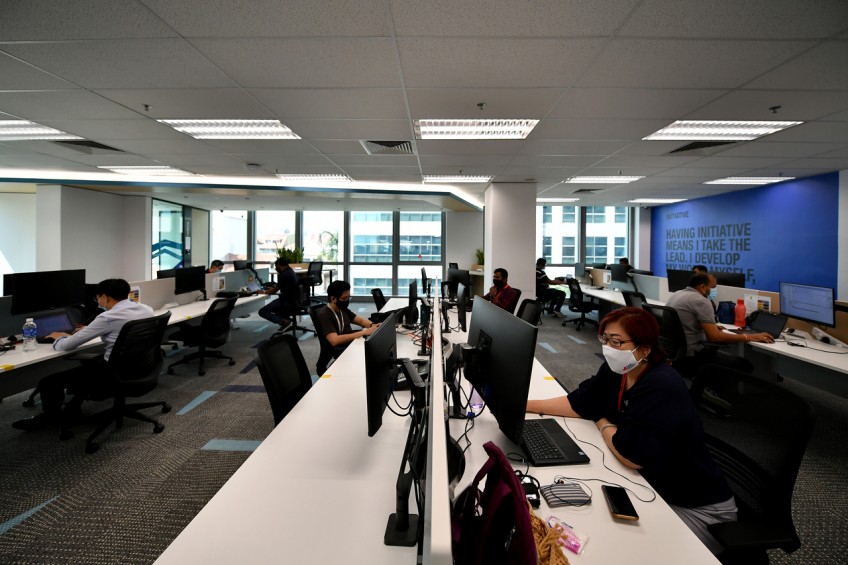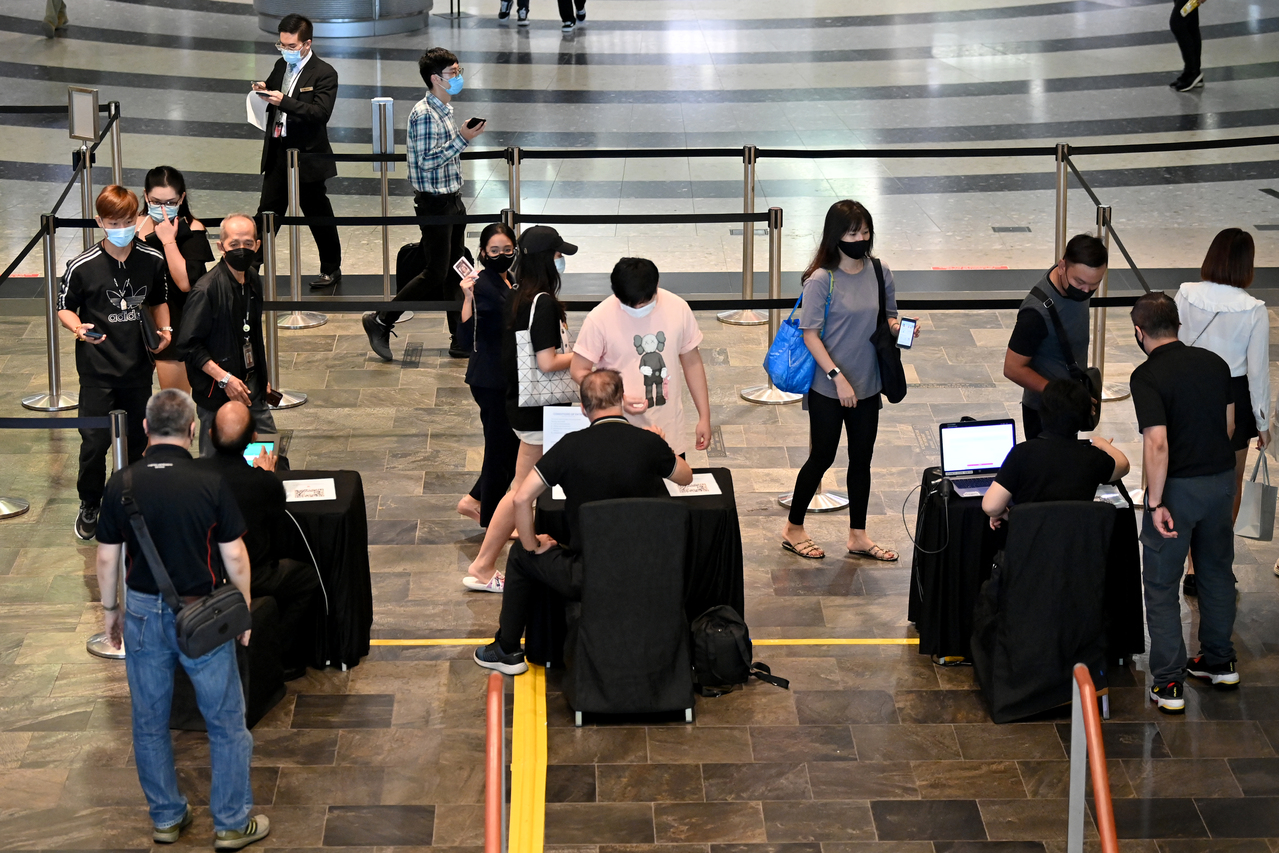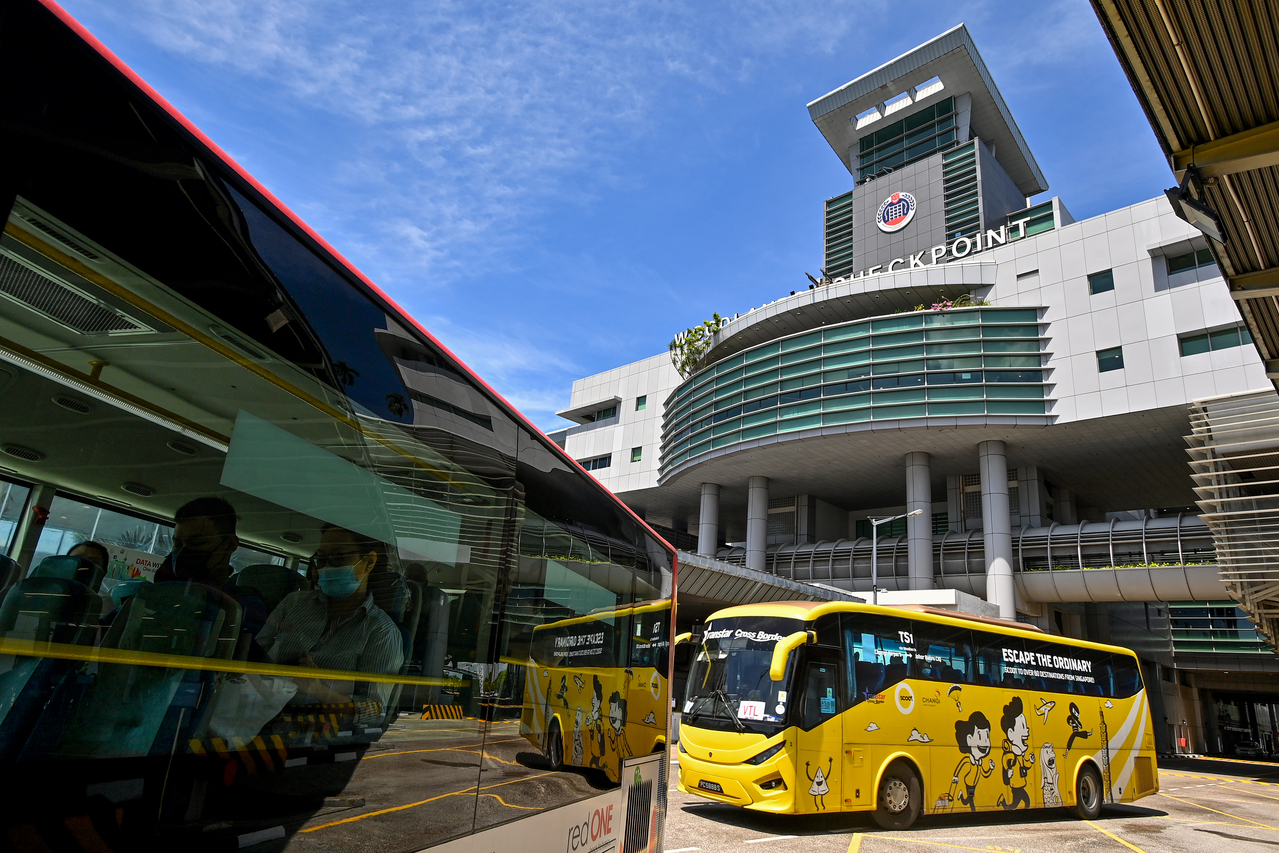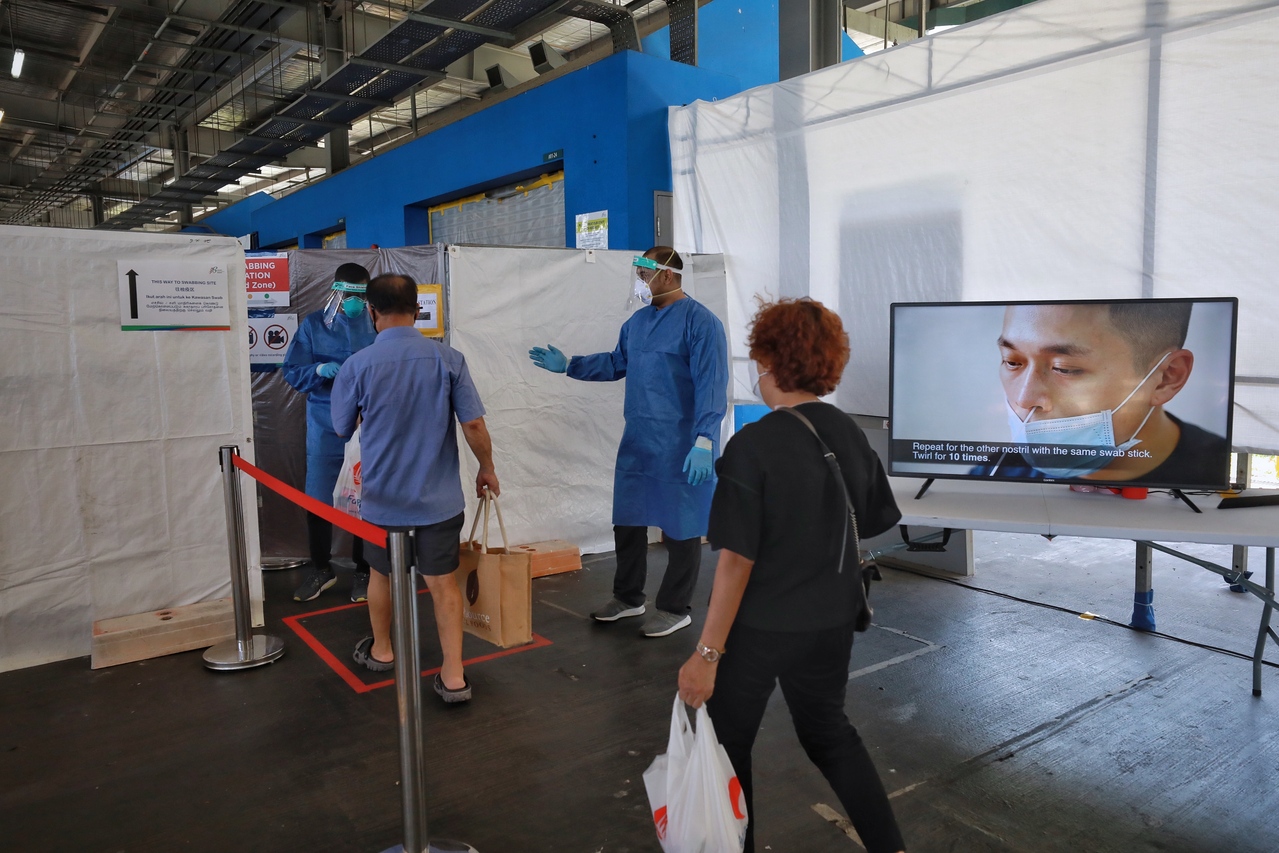New Covid-19 measures: 50% can return to office from Jan 1, vaccination-differentiated measures to be expanded


SINGAPORE - Vaccination-differentiated safe management measures will be expanded to more settings in the new year, as Singapore anticipates a potential surge in local Omicron cases.
The country is also pressing forward urgently with its booster vaccination programme and for more regular testing in the workplace and community, said the multi-ministry task force tackling the Covid-19 pandemic at a virtual press conference on Tuesday (Dec 14).
"As more Omicron cases are reported globally, it is a matter of time before the Omicron variant surfaces within our community," said the Ministry of Health.
Tuesday's announcements included more measures to encourage vaccination and boosters to protect against infection and severe disease alongside gradual and careful easing of measures for returning to office and the land vaccinated travel lane to Malaysia.
Here are Tuesday's key announcements:

From Feb 1, vaccination-differentiated safe management measures (VDS) will also cover all indoor sports facilities, institutes of higher learning, as well as leisure guests in hotels, hostels and serviced apartments.
Only those who are fully vaccinated, those medically ineligible for Covid-19 vaccines, people who have recovered from the virus, as well as children aged 12 and below will be able to enter then.
Students in institutes of higher learning who are completing their full-time Nitec, Higher Nitec, diploma or degree programmes will be exempted from the VDS measures requirement when entering their respective educational institutions. More details will be released by the relevant agencies.
Media conferences, work-related events and funerary memorial events will also require VDS from Feb 1.
Funerals, funeral wakes or funeral processions held during or before the burial or cremation of the deceased will continue to be allowed 30 participants at any time, and will not be subject to VDS.
From Feb 1, all events, irrespective of event size, must also implement VDS to proceed.
Currently, only events with over 50 attendees are required to implement VDS.
The Ministry of Health said that even smaller-sized events can spark transmission that can then spread to wider groups of people, especially in view of the Omicron variant.

From Dec 20, Singapore citizens will be able to enter Malaysia through the land vaccinated travel lane (VTL).
This means Malaysia citizens will also be able to enter Singapore through the same lane.
Currently, only citizens, permanent residents and long-term pass holders of the country they are entering are able to travel via the land VTL.
There will be no change to current test protocols in either country.
All travellers entering Singapore will have to abide by the prevailing test protocols and safe management measures, which include the post-arrival 7-day Covid-19 Antigen Rapid Test regime.

From Jan 1, Singapore will ease its current default work from home stance and allow 50 per cent of those who can work from home to return to the office.
This comes after an earlier announcement that from Jan 1, only employees who are fully vaccinated or have recovered from Covid-19 within the past 180 days, can return to the workplace.
Unvaccinated employees will not be allowed to return to the workplace unless they have tested negative for Covid-19, though this concession is currently being reviewed, said Finance Minister Lawrence Wong on Tuesday.
The cap for work-related events will be raised for events where all participants remain masked and seated at a safe distance from each other. All participants must also meet vaccination-differentiated safe management measure requirements.
Currently, the cap is at 50 persons. More details will be released at a later date.
Social gatherings at the workplace will continue to be disallowed.

The post-vaccination observation time for booster vaccination doses of mRNA vaccines will be reduced from 30 minutes to 15 minutes.
The Ministry of Health said that local and international data indicate that there is a lower risk of serious allergic reactions such as anaphylaxis from booster vaccination doses of mRNA vaccines.

From Jan 1, all recovered persons from Covid-19 who are not fully vaccinated will only be given a 180-day exemption after infection to enter settings where VDS is implemented.
This is reduced from the current exemption period of 270 days and is calculated starting from the day of the first positive SAR-CoV-2 polymerase chain reaction (PCR) test obtained in Singapore.
The Health Ministry said the adjustment is due to concerns over the heightened transmissibility and reinfection risk of the Omicron variant, and quicker waning of protection acquired through past infections.
Recovered persons who are not fully vaccinated should seek to complete their primary series vaccination regime promptly, it said.
Non-fully vaccinated individuals who had recovered from Covid-19 before Jan 1 will also have their exemption period reduced to 180 days.
However, for individuals who will already exceed the 180-day period as at Jan 1, they will be granted an additional one month grace period till Jan 31 to complete their primary series vaccination regime, so as to continue being able to enter VDS settings.
As recovered individuals need only one dose of mRNA Covid-19 vaccine or two doses of Sinovac under the National Vaccination Programme to complete their primary series vaccination regime, they should do so latest by Jan 17, to allow an interval of 14 days from the completion of the regimen to be considered fully vaccinated. During the grace period from the date when they have exceeded the 180-day period, these individuals can produce their discharge memo for entry into VDS settings.
The Government will extend subsidies to employers in sectors with mandatory rostered routine testing till March 31 next year.
The subsidies were previously supposed to end on Dec 31 this year.
The Health Ministry said that beyond March 31, employers and businesses should be prepared to factor in testing costs as part of their normal business operations.
It added that during this period as Singapore steps up its efforts to quickly detect and ringfence Omicron cases, all sectors will remain on their existing mandatory rostered routine testing regime, until more information is available on the Omicron variant.

The Health Promotion Board has set up or partnered private providers to set up close to 60 quick test centres where members of the public can make an appointment for a self-administered Antigen Rapid Test that is supervised by trained personnel.
Each test costs $15 and can be used to fulfill workplace requirements under the rostered routine testing regime, for pre-event or pre-activity tests, or by anyone who wishes to get tested before attending a large-scale event.
The Health Ministry has also partnered general practitioners (GPs), mall operators, and hotel groups to set up private quick test centres in selected sites located conveniently across the island.
The providers include mall operators such as CapitaLand, Frasers Property Retail, hotels under the Far East Hospitality Group, Intercontinental Hotel Group, Accor Hotels, as well as Resorts World Sentosa.
The ministry expects to have at least 60 additional centres set up within the next few weeks.
This article was first published in The Straits Times. Permission required for reproduction.